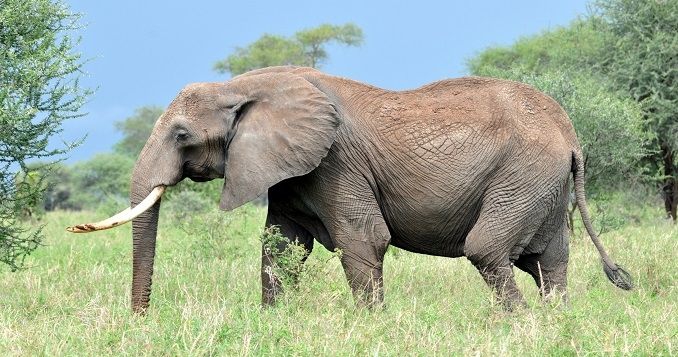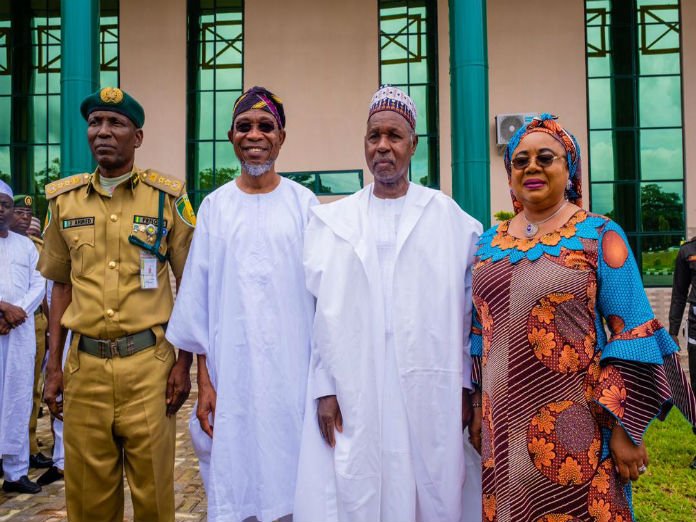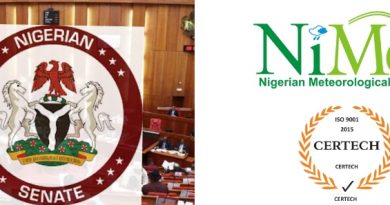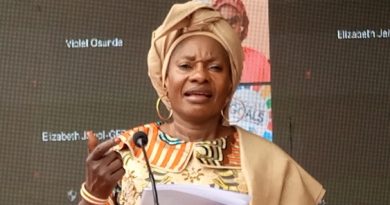TACKLING CORRUPTION IN ILLEGAL WILDLIFE TRAFFICKING IN NIGERIA
Oru Leonard
There is a high pressure on Nigerian wildlife, where pangolins, forest elephants and other endangered species, are traded both domestically and internationally. Animals are hunted for their bushmeat and body parts, such as pangolin scales and elephant ivory tusks.
The country’s deforestation has also led to further decrease in endangered animals.
According to a report of the CITES, Elephant Trade Information System to COP17, Nigeria is the second most prominent ivory exporting country of West Africa, functioning as a major ivory hub that draws in ivory from Central Africa and, increasingly, as far away as East Africa.
UNODC’s World Wildlife Crime Report (WWCR) 2020, found that, in 2019 alone, at least 51 tons of pangolin scales seized globally originated from Nigerian ports, compared to only 2 tons in 2015. More than half of all seizures of pangolin scales worldwide could be traced back to Nigeria in 2019. Data further suggests an increasing role of Nigeria in the illicit ivory trade. Despite a global decline in trafficking in ivory since 2011, Nigeria has been identified in a growing number of incidents as part of the illegal trade chain.
The January 2021 seizure at the Apapa Ports by the Nigeria Customs Service of 20 feet container containing the remains of various endangered species further highlights and buttresses these findings in the WWCR 2020. The container included 2,772 pieces of elephant tusks of different shapes weighing about 4,752kg; 162 sacks of pangolin scales weighing 5,329kg; 5kg of rhino horns, dried and fresh animal bones; 103 kg of skulls suspected to be of lions and other wild cat; and 76 pieces of timber (semi processed and processed).
UNODC’s Global Programme for Combating Wildlife and Forest Crime and the Corruption and Economic Crime Branch have developed practical tools to support wildlife management authorities to strengthen their capacity to mitigate against the risk of corruption that prevents them from achieving their mandate to protect wildlife.
The Government of Nigeria has requested UNODC’s support for interventions to tackle wildlife crime, including the conduct of a corruption risk assessment (CRA) for the wildlife and forestry sectors in Nigeria.
Consequently, UNODC in partnership with the relevant national ministries, departments and agencies is undertaking a series of activities to facilitate corruption risk assessments and the development of corresponding corruption risk mitigation strategies for Nigeria’s wildlife and forest sectors. This intervention is being funded by the European Union through the International Consortium on Combating Wildlife Crime (ICCWC).
UNODC will support both the wildlife and forest sectors in Nigeria. The first phase of the CRA will focus on the wildlife sector and, in particular, the Nigeria Customs Service and the National Environmental Standards and Regulations Enforcement Agency (NESREA), as the two main agencies with a mandate to counter illegal wildlife trade in Nigeria.
The corruption risk management is a structured, systematic method designed to identify the vulnerabilities of corruption and devise actions to minimize these vulnerabilities. UNODC’s guide: Scaling Back Corruption; A Guide on Addressing Corruption for Wildlife Management Authorities proposes five steps for the management process which include: 1) establish the context, 2) risk identification, 3) risk analysis, 4) risk evaluation, and 5) risk treatment.
The process sensitizes wildlife authorities on corruption-related issues, supports them in undertaking the corruption risks management process, and provides them with a concrete plan that will support a better governance within the target institutions. It is to be noted that the process aims to reduce the risk of future corruption and is not intended to identify past corruption.
On 22 and 23 March 2021, UNODC in conjunction with the Federal Ministry of Environment, NESREA and ICPC undertook the first workshop in a series of corruption risk assessment and management activities. A second workshop will be scheduled in April focusing on the Nigeria Customs Service.
The objectives of this workshop were to:
Apply the basic principles of corruption risk management to identify current and potential weaknesses in regulatory frameworks, processes and procedures within agencies that might allow corrupt practices take place.
Prioritize the identified corruption risks based on the likelihood of occurrence and the impact they would have to allow optimal allocation of resources
Identify the next steps towards the development of targeted risks mitigation strategies.
This workshop is one of the interventions being implemented by UNODC to support Nigeria in tackling illegal wildlife trade. Other interventions include the Project funded by the Government of Germany, and implemented in cooperation with the Nigerian Government, aimed at strengthening Nigeria’s response to the trafficking of wildlife and forest products. This will be achieved through the development of Nigeria’s first national strategy to combat wildlife crime, trainings for frontline officers to detect and intercept illegal shipments of wildlife, as well as strengthening of prosecutorial and judicial capacity to investigate, prosecute and adjudicate wildlife and forest crime.
(UNODC Media Unit)




